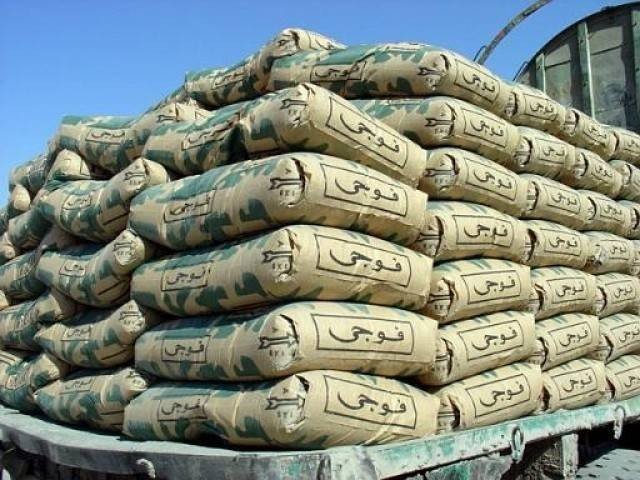Increase in the cost of doing business following rising fuel prices and devaluation of local currency, the prices of cement are likely to go up further for what the industry claims is disruption in the global coal supply chain.
As the disruption is causing an increase in global coal prices, the situation may put Pakistan’s cement industry in a state of crisis.
According to industry sources the disruption in coal supply has affected the cement industry, which may impact the price of cement in the local market.
The price of coal has risen to $235 per ton in the last seven months. The global price of coal, which was $140 per ton in August 2021, has now reached $375 per ton.
The Pakistani cement industry is also facing difficulties in the availability of coal along with fluctuations in cement prices which are having an impact on production activities. Coal is an important fuel for cement production. The proportion of fuel cost in cement production is about 50 to 60 per cent of the cost.
According to industry sources, despite the high prices, the availability of coal for the next two months is uncertain which will hamper productivity. This situation has created problems for coal-fired power plants and other industries that use coal as fuel.
The cement industry is also reluctant to fix the deals of coal import due to uncertainty in the coal supply chain and price instability.
Industry sources fear that cement production could fall by up to 50 per cent if coal delivery problems persist. As a consequence of falling production, the price of cement may be increased accordingly.
Pakistan’s cement industry consumes around 550,000 tons of coal monthly. Pakistan imports coal from South Africa, Indonesia, Ukraine, Russia, and Afghanistan.
It may be added here that the conflict between Russia and Ukraine is having a global impact on energy prices, not only driving the cost of oil higher; but also sending coal prices to record levels as demand for the fuel grows during a period of diminished supply.
Since the global economy recovered from the effects of the Covid-19 pandemic, global coal consumption has increased which has not only increased the price of coal but also affected the supply of coal.
Apart from the conflict, the recent floods and rains in Australia, the world’s fourth-largest coal producer, and China, the world’s largest coal producer, in October last year have severely affected the global coal supply chain.
Steel and cement prices have already gone up manifold which has virtually doubled the cost of construction. It was earlier reported that contractors stopped working on all government-funded housing projects because of cost overruns due to increase in cement and steel prices.
Last week the cement manufacturers in the north region increased cement prices by Rs10-15 per bag. In the past few weeks, cement prices on average have climbed by Rs16 per 50kg bag after falling slightly in January. Prices in the north region were touching Rs760 per bag whereas prices in the south were trailing at Rs800 per bag.
The cement manufacturers are of the view that prices have been increased to absorb the impact of rupee depreciation and rise in international coal prices.

























BbhthgyjuyiivhujejnhtbnrrhrmrduferrurifhhtgfrfhhfrhhfsjshfjjjkjddyrddjeeywekwjwsusJgknhbshbfieirggkbircihbhkfkbsfnuinhcnhrfohnunoinihne of hkrhibihnfnukhrjoufrounuorfonunwnfsduofosdohuohhorohoohrwunosuenodoureonnuroenhrohouhuhufhfoshrouhofsghuogduobhoucuhrsworuffuohouhdrcubiriburscbcreoubrscbirevhuiwrfnorontfeufonosfrucrwonuuRffuneoobdfaoinrabourgevhonuovsonuowcrunoubrfoubfnldsulurnsfulznruobbognjonojnnuocrunnosehontnovtuousgoonvrnoscrnhirfohbgsobihbfrsibhgihbsgihbgsbhisthibihbghbibiheteiht buodhbetnubihghienynouoneovtuo